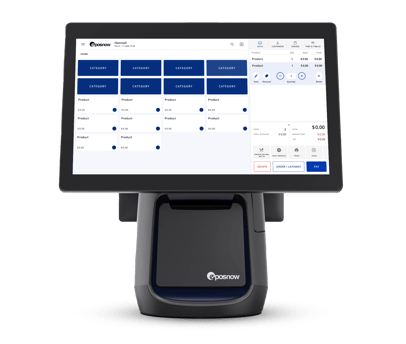How to Choose the Best Payment Processing Solution for Your Business
Victor Miranda Med City Payments
6/7/20242 min read


In today's fast-paced digital world, choosing the right payment processing solution is crucial for the success and growth of your business. With a plethora of options available, making an informed decision can be challenging. This guide will walk you through the key factors to consider when selecting a payment processing solution that aligns with your business needs.
The first step in choosing the best payment processing solution is to thoroughly understand your business needs. Consider the following questions:
What types of payments do you need to accept (credit cards, debit cards, mobile payments, etc.)?
Do you operate a brick-and-mortar store, an e-commerce site, or both?
What is your average transaction volume and ticket size?
Understand Your Business Needs


Evaluate Security Features
Security is paramount when it comes to payment processing. Ensure the provider you choose offers robust security features to protect your customers' data. Look for:
PCI-DSS compliance- Ensures that the provider adheres to the Payment Card Industry Data Security Standard.
Encryption- Protects sensitive data during transactions.
Tokenization- Replaces sensitive card information with a unique identifier, enhancing security.


Consider Costs and Fees


Payment processing fees can significantly impact your bottom line. It's essential to understand the fee structure of different providers.
Transaction fees: A percentage of each transaction or a flat fee per transaction.
Monthly fees: Fixed fees charged monthly for the service.
Setup fees: One-time fees for setting up the account.
Chargeback fees: Fees for handling disputed transactions.
Compare these costs across providers to find the most cost-effective solution for your business.
Integration and Compatibility
Ensure the payment processing solution seamlessly integrates with your existing systems.
Point of Sale (POS) systems- If you run a physical store, ensure the provider's POS system integrates with your existing setup.
E-commerce platforms- For online businesses, check compatibility with your e-commerce platform.
Accounting software-Integration with accounting software can streamline your financial management.
Customer Support
Reliable customer support is essential for addressing any issues that may arise.
Look for providers that offer:
24/7 support: Ensure help is available whenever you need it.
Multiple support channels: Options like phone, email, and live chat can be beneficial.
Dedicated account managers: Personalized support can enhance your experience and address specific business needs.


Flexibility and Scalability
Choose a payment processing solution that can grow with your business.
Scalability- Can the provider handle increased transaction volumes as your business grows?
Flexibility- Does the provider offer solutions for both online and offline transactions?'
Med City Payments
by Miranda Tech Solutions LLC a Titanium Payments Authorized Reseller.
Savings
Security
info@medcitypayments.com
507-200-8393
© 2024. All rights reserved. Designed by Miranda Tech Solutions
1500 1st Ave NE Ste 109 Rochester, MN 55904




